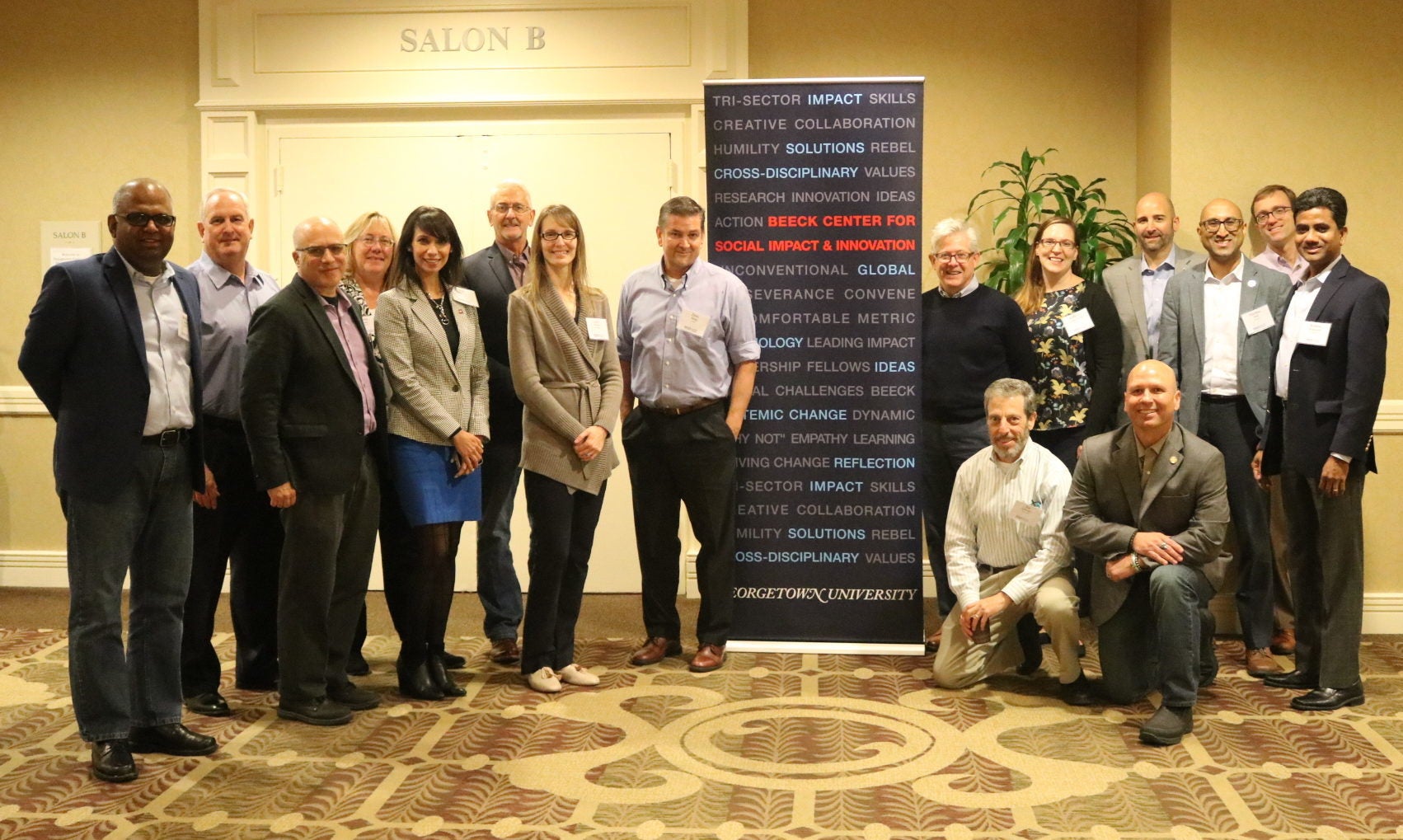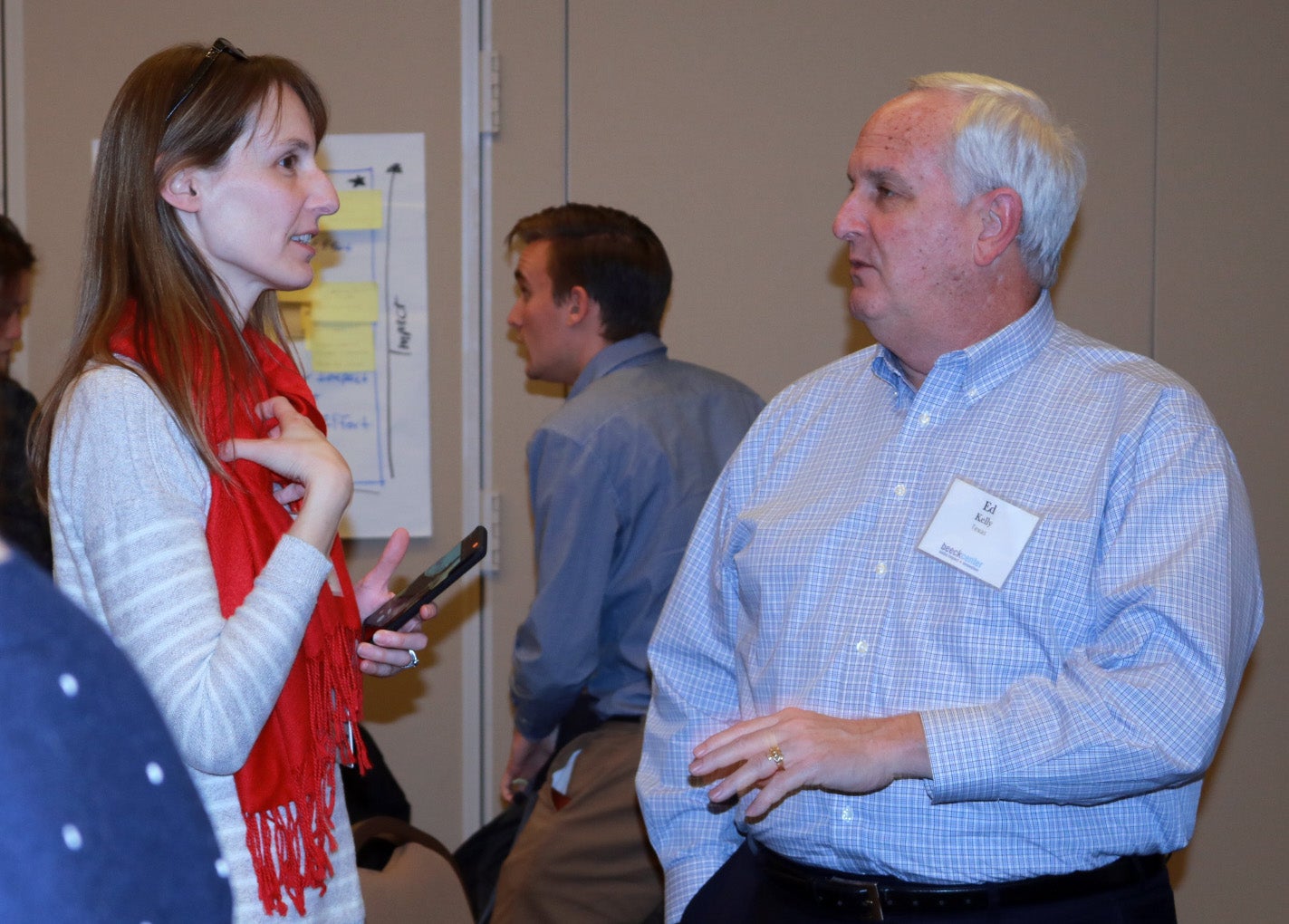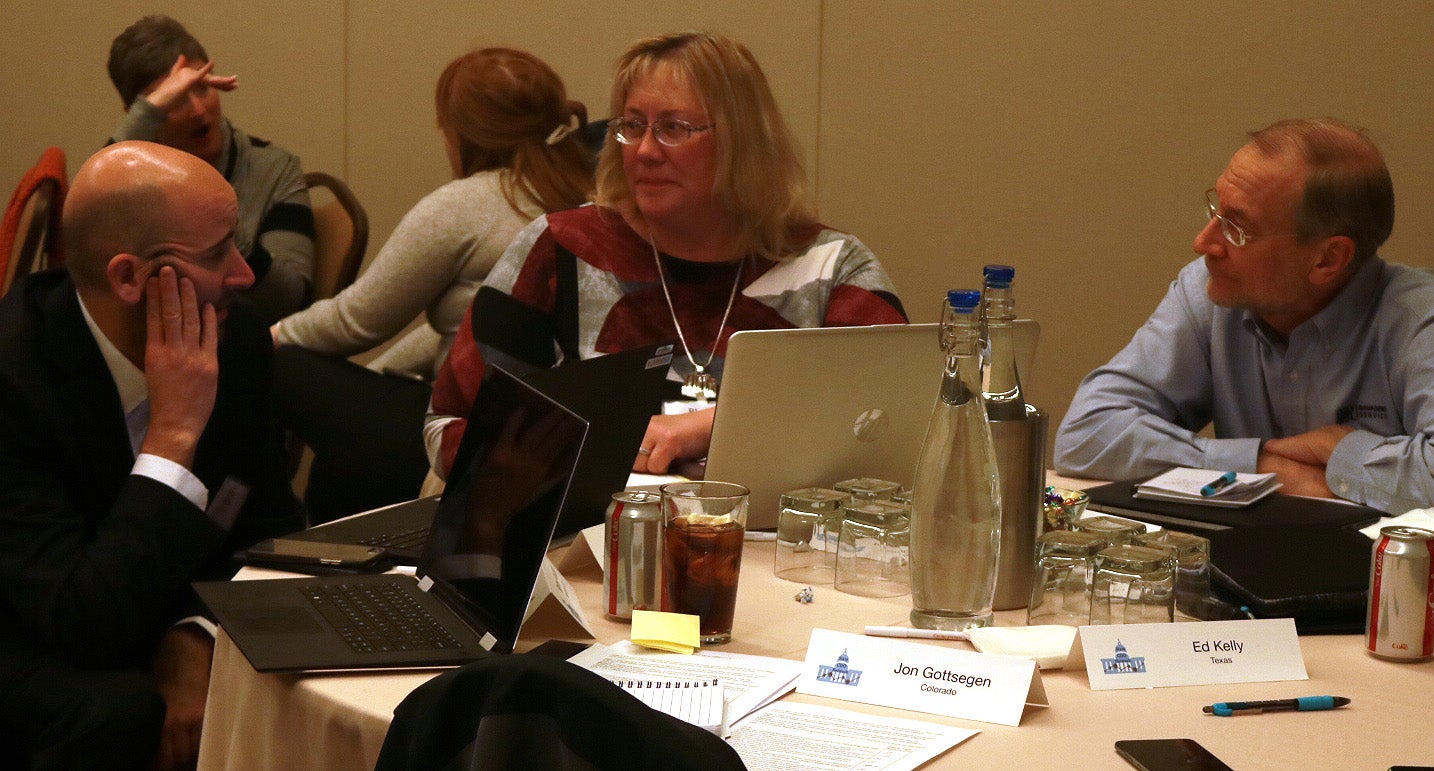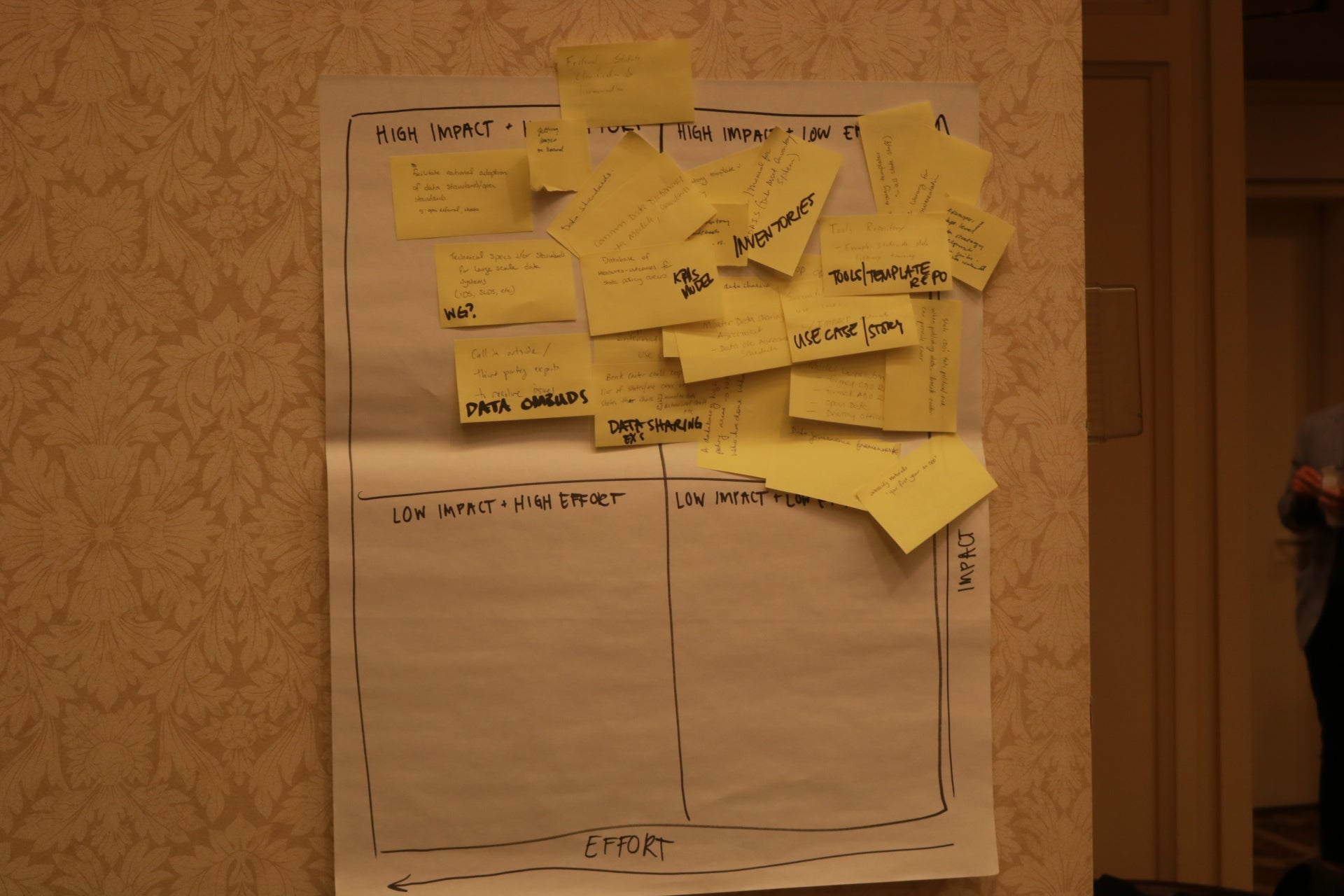The Power of Convening: State CDOs Gather in Person for the First Time Ever
November 22, 2019 | By Tyler Kleykamp
In an era where states often compete with one another for jobs, economic development, or federal funding, the spirit of cooperation was at the forefront last week as the Beeck Center gathered the nation’s state Chief Data Officers (CDOs) together for the first time. States are increasingly naming CDOs to serve in executive roles to influence the way states collect, maintain, and operationalize data to improve services for the public as well as to build efficiencies and effectiveness into internal systems.
At Georgetown, the CDOs spent two days sharing challenges and successes and identifying opportunities to collaborate with one another. While they had been meeting monthly via conference call for years, this is the first time they had all been together in person. Sixteen CDOs attended, representing all but one state that has a formally established CDO role, and including one CDO who had only been on the job for five days.

“You have to lead with value.”
The CDOs opened the meeting by sharing successes from the previous year. Examples included technology implementations like data integration platforms and improving public availability of data as well as cultural changes such as creating agency data officers and enhancing data literacy. They also discussed broad issues related to their core responsibilities and how they’ve overcome some of the challenges associated with the job, resulting in some central themes. First, relationships matter. It was clear that building trust with their partner agencies is critical and CDOs must demonstrate that they are enabling the agencies and personnel they work with to better leverage data. As one CDO said, “You have to lead with value.” Mandates and more heavy-handed approaches to data sharing can easily make their job more challenging, but they must also demonstrate the ability to handle data in responsible and legally compliant ways.
A second theme was the amount of friction that occurs in sharing and using data. Much of this is necessary to ensure that sensitive data remains protected and that its use is legally compliant, while other issues are related to the data itself. Issues like data quality, lack of standards, or common identifiers present challenges. CDOs shared how they’ve streamlined or standardized legal agreements and ways they’ve dealt with more technical challenges — but it was clear that more can be done. One solution was having dedicated legal support for CDOs. “Having an attorney who ‘gets it’ and can speak the language of other attorneys has been critical,” shared one CDO.
A primary goal of the convening was to strengthen personal connections among CDOs in additional to building their professional relationships. A rapid-fire question-and-answer session allowed CDOs to explore emerging data issues like artificial intelligence, geospatial data, and new data protection laws. This matchmaking exercise quickly identified common issues they are thinking about so they could follow up afterward. Another mechanism to encourage more personal relationships was through “speed networking,” pairing people for short one-on-one meetings, providing an opportunity for individual conversations in a less formal setting, and setting them up to feel more comfortable working collaboratively in the future.

A CDO’s job is big, but they consistently expressed a need to start small. They discussed surfacing discrete use cases and immediate steps they can take in their states to equip them with techniques they can apply immediately. For example, pulling together public data into a GIS map to better understand risks to children, or conducting an inventory of data that can inform an issue are great places to start.
Another approach was to break the CDOs into smaller groups to identify specific policy areas important to their states to identify common priorities which surfaced issues like workforce opportunities, reducing opioid-related deaths, and improving child welfare. The groups established ways they can leverage their role or data to make a positive impact immediately, and identified opportunities that may be more challenging where additional support and facilitation from partners like the Beeck Center could move the needle further.

Working collaboratively with the Beeck Center team, CDOs identified a broad array of high impact items that can boost their work including:
- templates for data sharing agreements or data inventories
- repositories of documents or information
- more in-depth research on technology solutions and best practices
The exercise demonstrated the value that the Beeck Center can bring to this emerging field and allows us to prioritize the creation of high impact tools.

Another approach with this group was to include expert lightning talks to demonstrate big ideas to use data for social impact including better serving the most vulnerable individuals in emergencies, reducing recidivism, preventing lead poisoning, improving elections, and enhancing child welfare. These plug-and-play solutions have shown promise in some jurisdictions and are ready for wider adoption by other states. Additionally, a panel of city, state, and federal government officials explored opportunities for collaboration and discussed where states can make a unique impact with data including through improvements in educational outcomes and access to jobs.
State CDOs are doing incredible work in their states, and at the Beeck Center we are committed to highlighting those successes so they can be replicated across the country. We’re getting started immediately on building a CDO toolkit that will include resources both highlighted at this convening and activated elsewhere and will support CDOs in their commitments to sharing resources such as legal agreements with the network.
The Beeck Center will continue to convene this network both in person and online through webinars and other touchpoints and we look forward to welcoming in the next wave of CDOs as seven states recruit for these roles and hopefully join the network. The role of the State CDO Network will remain focused on keeping the momentum going until we meet again, which one CDO declared, “…is absolutely the one event I have to go to.”
Tyler Kleykamp is the Director of the State Chief Data Officers Network at the Beeck Center. He was previously the CDO for the State of Connecticut from 2014-2019 and led many of the early calls and connections among state CDOs.